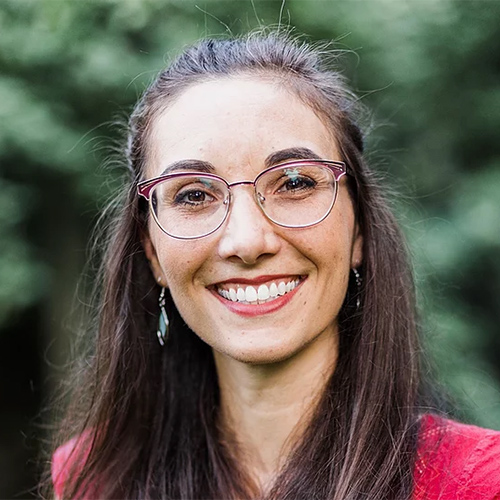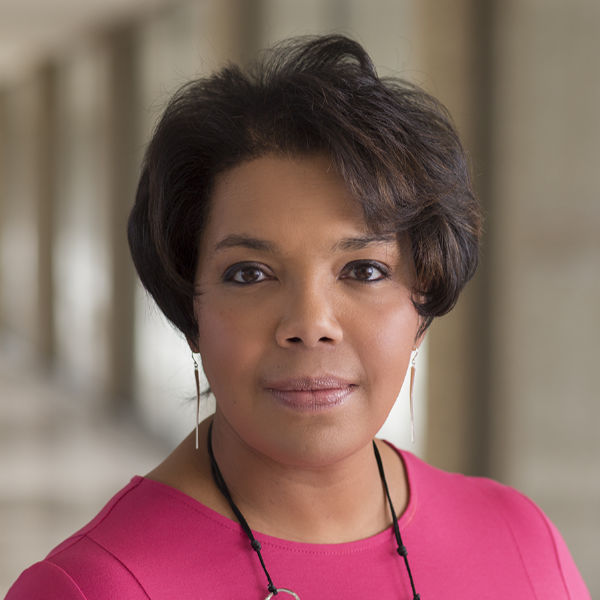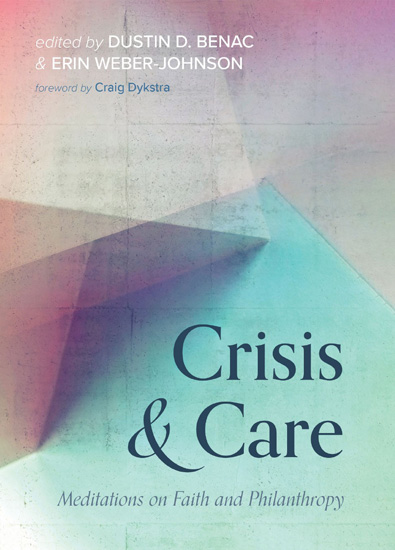Michaele D. Birdsall approaches her role in the American Baptist Churches, USA, with business skills tempered by faith, believing that God will provide the resources for whatever he calls the church to do. As treasurer and CFO of American Baptist Home Mission Societies (formerly the Board of National Ministries), Birdsall has spent much of her time in recent years overseeing painful cuts in staff, materials and programs.
But beneath those economic issues are much more important questions facing the church, she said: How relevant is the national organization for local congregations? How do we re-imagine a different way of living out faith?
If we open ourselves up to God and the Holy Spirit for the answers, we’ll be surprised by the abundance, she said.
Birdsall spoke to Faith & Leadership about balancing the scarcity and abudance. The video clip above is an excerpt from the following edited transcript.
Q: As CFO of American Baptist Home Mission Societies, what challenges do you face in mixing finance with faith?
The CFO role requires you to have the technical aspect to your work, but my faith is an important part of what I do. Ultimately we’re not called to live from a scarcity mentality, even with the economic crisis. When things collapse around us, the church is called to approach things differently.
I started with the American Baptist Home Mission Society before the market collapsed. We relied heavily on our unrestricted reserves to balance the budget. We were founded in 1832, and over the years faithful American Baptists left money to continue our ministry. As leaders in the larger American Baptist family, what legacy will we leave for the next generation?
Approximately 60 percent of our budget comes from endowment and investment funds. With the market collapse there is concern that it’s such a large portion of our income. It forces us to take another look at our organizational mission.
There is work to do in the arena of having vibrant relationships with our local churches. Because we had a healthy endowment our organization became complacent and never focused on fundraising. Now we realized we had to get income and not rely on what was there from the past. Relationships are the foundation for effective fundraising. As we’ve addressed the immediate financial crisis, we’ve looked at our ministry models and the relational capital we have with our constituents.
Two years ago we were talking about a $1 million [budget] gap. When you look at how heavily we depended on our unrestricted reserves, it’s closer to a $3 million gap. As we entered our 2010 budgeting process we had a mandate to reduce our budget minimally by $1.3 million. The only way to breach that kind of gap was to reduce our workforce. That was a very painful step. We’re still living into the reality of what that means for the organization. We did those cuts primarily through a voluntary early retirement package. Colleagues you’ve worked with for years are no longer there. And a smaller staff is being asked to pick up that work.
Many organizations have difficulty saying what they will not do. We have compassion. We want to do everything everyone needs us to do, but with limited resources that’s simply not reality. Our leadership is saying, “What is God calling us to do? How will we be faithful stewards of the gifts God has entrusted to us?”
We reduced expenses primarily through workforce reduction. We reduced our travel budget significantly. We reduced our printed materials. Those are short-term solutions. The long-term solution is looking at our ministry models and saying, “What are going to be effective ministry models for our 21st -century church?” That takes longer to get your hands around.
We put together a strategic plan exploring what those 21st -century models look like. I’ve developed projections that give us a sense of what the challenge is financially. We’re looking to 2015 to stabilize and be at a place of actual growth in ministry. The solution to the financial challenge lies in building partnerships that help us move into the 21st century.
Q: Speaking of partnerships, the Isaiah Funds, the interfaith disaster-recovery program, is expanding. How does that happen when people are economically pinched?
Our organization set aside $1 million to invest in mission initiatives. We are one of the founders of the Interfaith Center on Corporate Responsibility (ICCR). A small group within ICCR began thinking about the Isaiah Funds. The funds are available in a disaster to help those on the front lines who can meet needs immediately.
The Isaiah Funds is planning for the future as well as for immediate crises like Hurricanes Rita and Katrina. When we look at the government response to Rita and Katrina … it was the faith community that was there right away, but there wasn’t structured capital to leverage what the faith community was attempting to do.
The Isaiah Funds is putting infrastructure in place so the next time those in the faith community want to reach out, there’s an infrastructure to make that happen. It’s a very exciting venture we’re in with many faith partners. As a faith community God calls us not to approach our ministry from a position of scarcity, but to move beyond what we can see.
There is an inherent tension between financial management and this whole idea of faith. Clearly some things from the business world underpin what I do in my role as CFO. But beyond those things that I can see, beyond those tools that I have learned, ultimately it’s God that opens doors. God will provide the resources for whatever he calls us to do.
If I am faithful in my role as a CFO, I help the organization plan for a worst-case scenario, hoping that worst case never happens. We are entering ministry with our eyes wide open and we’re preparing to address what happens. Through that faithfulness to what God calls us to do, God will open up the doors so that we can reach those in need.
The treasurer’s report for our 2008 Annual Report was the hardest piece I had written for our organization. I wrestled with knowing that staff layoffs were imminent; we were going to have to make some significant cuts. The human side of that equation hit home, talking to colleagues who were electing voluntary early retirement. The struggle they are in is very real. God takes us through a pruning process sometimes, and pruning is painful. The economic crisis is certainly pruning on a massive scale. It’s an opportunity for us to wake up and look at things with a different set of eyes … really seek God and say, what does faithfulness look like for our organization today?
Q: How has your organization approached difficult conversations while deciding what you are not going to do? Has there been anything in particular that was effective or not effective?
We are still in the process of identifying what we will not do. Part of making that decision is having more open conversations with our constituents. Many organizations are in the same boat, where leaders used to decide what we needed to be involved in. [We are in the process of finding out] what’s resonating with our constituents; we’re having two-way communications and then developing the programs to meet the needs, versus developing programs and hoping others will come. We have limited resources and we’re engaged in open dialogue with our constituents and staff to identify what we will not do.
I’ll give you an example. We do a fair amount of conferencing and the number of participants in the conferences has gone down in recent years. When you look at what you spend to put on a conference and the numbers of people you actually reach, you have to make a decision. Is this the best use of our resources? We have been experimenting with Web-conferencing and Webinars. We’re finding that we’re able to meet and engage more people with technology than we can in our face-to-face conferences.
We’ve been talking about what we won’t do since I started three years ago, but we’re in the early stages. When you look at the organization’s culture, it’s a big change to say we’re no longer going to do this or that project. How do you say to the constituency that follows this project, “We’re not going to be able to do this ministry anymore?”
Our program group has decided to not do reconciliation ministries the way we’ve done them before. We had one person who did workshops and trainings on peace and reconciliation. That was one of the things we could no longer do. That was a hard decision to make. But we realized we could not have one person dedicated to that anymore. That was one area where we had to say no.
Q: From where you’re sitting, are we through the worst of it? Do you see a five-year, 10-year process to financial recovery?
As American Baptists, we’ve been looking at declining contributions for many years now, since I came on board about 11 years ago. So for me, it’s more fundamental than the economic crisis that we’re in right now. It really is about, “What is the value that we are bringing to our local churches who primarily fund what we do?” “How relevant are we to the local church?”
So many of our churches are experiencing a reduction in terms of contributions that are coming into the church because people have to make a decision: Do I pay my tithe this week or do I pay my mortgage?
I go to the whole issue of faith and what God calls us to do. And if we are meeting people at the point of their need, if we are relevant to our churches and the individuals in our churches who really want to make a difference in the world. They look at the increasing gap between the “haves” and the “have-nots.” And that sense of justice, and how do we create a system that is more just and more fair, so that you don’t have the excesses that really created the financial crisis that we’re in right now. It’s insane when you think about the gap between those who have a lot and those who have so little. And so how do we begin to re-imagine how our economy works? How do we begin to re-imagine as a people of faith and as the church, a different way of living out our faith? And I think that as we open ourselves up to God and the inspiration of the Holy Spirit, to show us creative ways to be church that actually impact the economic models that we participate in, I think we will be surprised at not the scarcity that’s out there, but the abundance that’s there. But again I think it takes us being really honest in terms of “Are we relevant today as a church?”
Our organization has lived very well on what our predecessors gave. So they left their legacy. But the question is, “What is our legacy today?” It’s a different world as we enter the 21st century. What God is calling the church to be is different.
Q: How do you see people of faith transforming the kind of inequalities of the world that led to the current financial crisis?
In our denomination we’ve been exploring issues around vocation and calling. The church has focused a lot on ordained ministry, but the ministry of the laity is important to the church. Individuals in our churches are economists, financial managers, investors, lawyers, and all kinds of things. Part of the challenge is to help folks like me who are not ordained ministers see what we do as a ministry, as a calling.
If we see how we operate outside the church as ministry, it opens up different avenues for approaching that [work.] We interact in the larger world and in the economic system. It’s not that I’m one person in my church and another person in my investment firm, but that our calling to live out our faith operates both inside and outside the walls of the church.
I don’t know how much we have thought about our ability as a larger church to impact economic systems. As church leaders, what’s the story we tell ourselves about our ability to bring the kingdom of God on Earth? I’ve been intrigued with when Jesus prayed “Thy kingdom come, thy will be done on earth as it is in heaven."
I used to think about that as a future thing. Somewhere way in the future God’s kingdom is going to come. But I’ve been more convicted that the call is for us to bring the kingdom to Earth in our time. As Christians, we don’t look at the inequities of the world and feel like we can’t change them. If we were to approach our work with a sense of God calling us to make it real in our time, how might that change what we do? How might that change how we work together to change this unjust system? God has given us the power to change it, and the question is, “Will we seize that reality?” If we do, God is there to help us make it happen. But we have to first think it’s possible.










